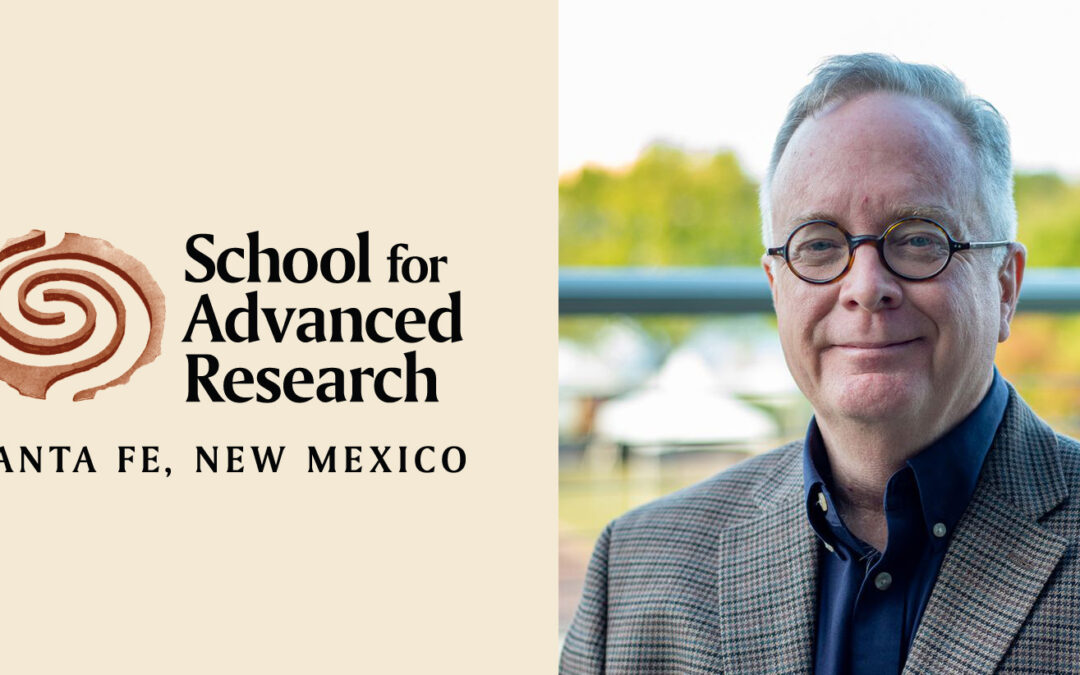When Michael F. Brown accepted the role as president for the School for Advanced Research in 2014, he committed to leading the institution for ten years. True to his word, last fall Dr. Brown announced his retirement effective July 2024, ending a tenure of exceptional service in leading SAR in a period of substantial programmatic and fundraising growth that has broadened SAR’s impact nationally and internationally.
After an extensive search, SAR’s board of directors has announced that Dr. Morris W. Foster has accepted the role of SAR’s new president effective July 1, 2024. Dr. Foster holds a PhD in anthropology from Yale University and his research focuses on social history and medical anthropology. He has published on a wide range of topics including Native American ethnography and ethnohistory, processes for community engagement, population and public health research design and policy, research ethics, and climate change. His book Being Comanche: A Social History of an American Indian Community (1992, University of Arizona Press) was awarded the American Society for Ethnohistory’s Erminie Wheeler-Voegelin Prize for Best Book in Ethnohistory. Dr. Foster is an emeritus faculty member at the University of Oklahoma and was vice president for research at Old Dominion University (ODU), where he led the effort for ODU to achieve Carnegie classification as an “R1” or “Very High Research” institution. Dr. Foster has served in a number of other university administrative roles as well as leadership positions for multiple non-profit organizations. Dr. Foster is married to Joan Cuccio, who is a potter. They have three adult children.
Ken Cole, chair of SAR’s board of directors, expresses confidence that Morris Foster will build on SAR’s recent momentum, which includes its first-ever traveling exhibition of Pueblo pottery, Grounded in Clay, currently at the Metropolitan Museum of Art in New York. “Morris’s anthropological training, administrative experience, and familiarity with Native American issues will serve SAR well,” says Cole. “We are delighted that he has accepted our offer to take the helm of one of Santa Fe’s oldest and most distinguished cultural institutions.”
Dr. Foster states, “I am honored to be selected as SAR’s next president, especially following Michael F. Brown’s decade of outstanding accomplishments. SAR plays a unique role at the intersections of the arts, humanities, and social sciences. Exploring these intersections is critical to advancing the academic disciplines served by SAR. Of equal importance, SAR also has the ability to help frame those interdisciplinary understandings in accessible terms that demonstrate the value of interweaving academic and Indigenous ways of thinking about the world to address critical challenges. SAR is one of only a handful of independent research institutes shaping this interdisciplinary and inter-community space for both the public and academia. I’m looking forward to continuing SAR’s long tradition of scholarly and community engagement.”
